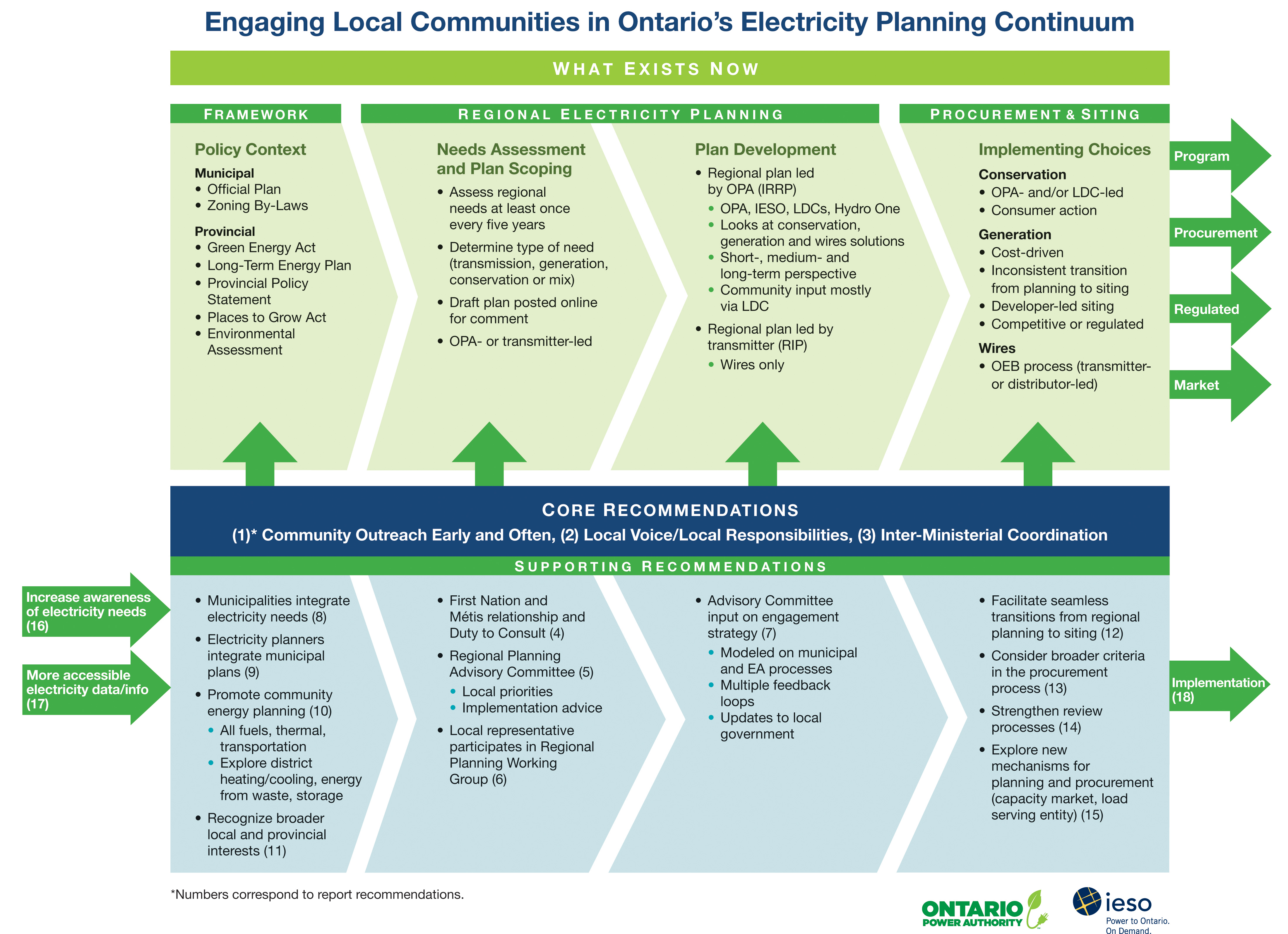Toronto: Ontario Premier Kathleen Wynne, in her official response to the report of the Auditor General on the cost of two power plant cancellations, reiterated and clarified her promise to make significant changes to the rules and procedures affecting the siting of major power projects. High among the changes are measures to ensure that communities share responsibility for ensuring there is adequate electricity infrastructure in their regions.
 In a statement released October 8, Premier Wynne said, “Firstly, we will improve the siting of large energy infrastructure projects by implementing the recommendations of the Ontario Power Authority and the Independent Electricity System Operator. Communities will have a say at the beginning. We need to ensure that we get the siting decisions right the first time. Secondly, I have asked the Secretary of Cabinet to create new rules limiting political staff involvement in commercial, third-party transactions.”
In a statement released October 8, Premier Wynne said, “Firstly, we will improve the siting of large energy infrastructure projects by implementing the recommendations of the Ontario Power Authority and the Independent Electricity System Operator. Communities will have a say at the beginning. We need to ensure that we get the siting decisions right the first time. Secondly, I have asked the Secretary of Cabinet to create new rules limiting political staff involvement in commercial, third-party transactions.”
The recommendations of the OPA and IESO were contained in a report released in August titled, “Engaging Local Communities in Ontario’s Electricity Planning Continuum.” (See the article “Agencies propose techniques to enhance community engagement in power planning,” from IPPSO FACTO, August 2013.) Key amongst these recommendations were the following: “As municipalities plan to meet water, waste and growth needs they should likewise be required to plan for electricity needs. … The Provincial Policy Statement (2005) provides guidance to municipalities as they prepare or review their Official Plans and should be modified to include a more explicit requirement for municipalities to consider electricity needs in relevant municipal plans.”
“It is noteworthy that the Premier has accepted all the recommendations of the OPA-IESO siting report, and in particular the greater integration between electricity and municipal planning,” said APPrO Executive Director Jake Brooks. “This is a very important change that has been under discussion for years and has a lot of support amongst the industry.”
The provincial government moved quickly to respond to some of the OPA-IESO recommendations. For example, initiatives on municipal energy planning were announced in August (see story on page 11.) It will likely take some time before some of the more complex recommendations are implemented. A new policy statement limiting political staff involvement in commercial transactions was slated for release in October.
APPrO made a submission in August recommending that the OPA examine the transitional provisions in more detail to ensure that projects with a valid Statement of Completion or other significant approvals in hand are not subject to onerous new approval requirements.
